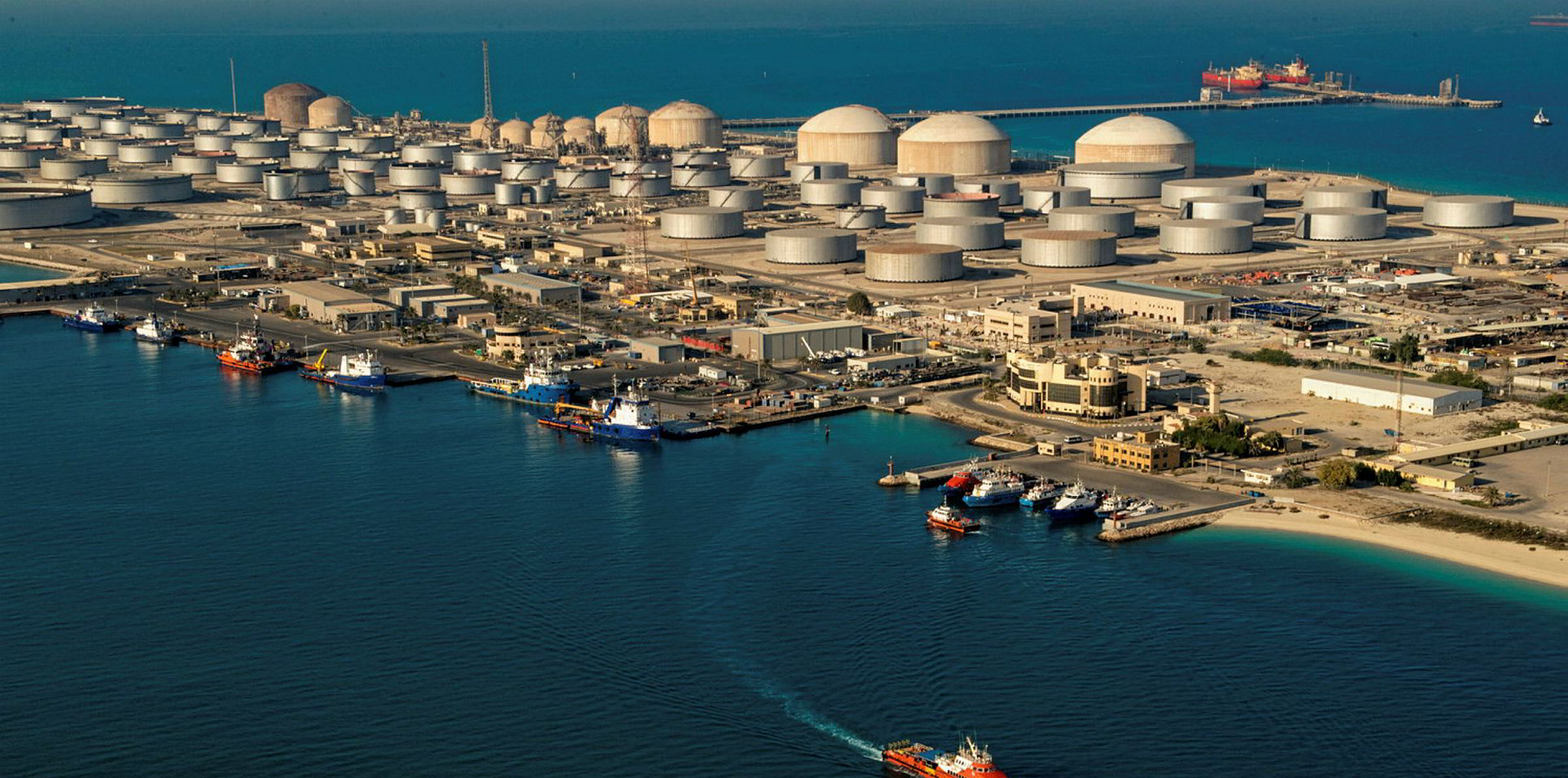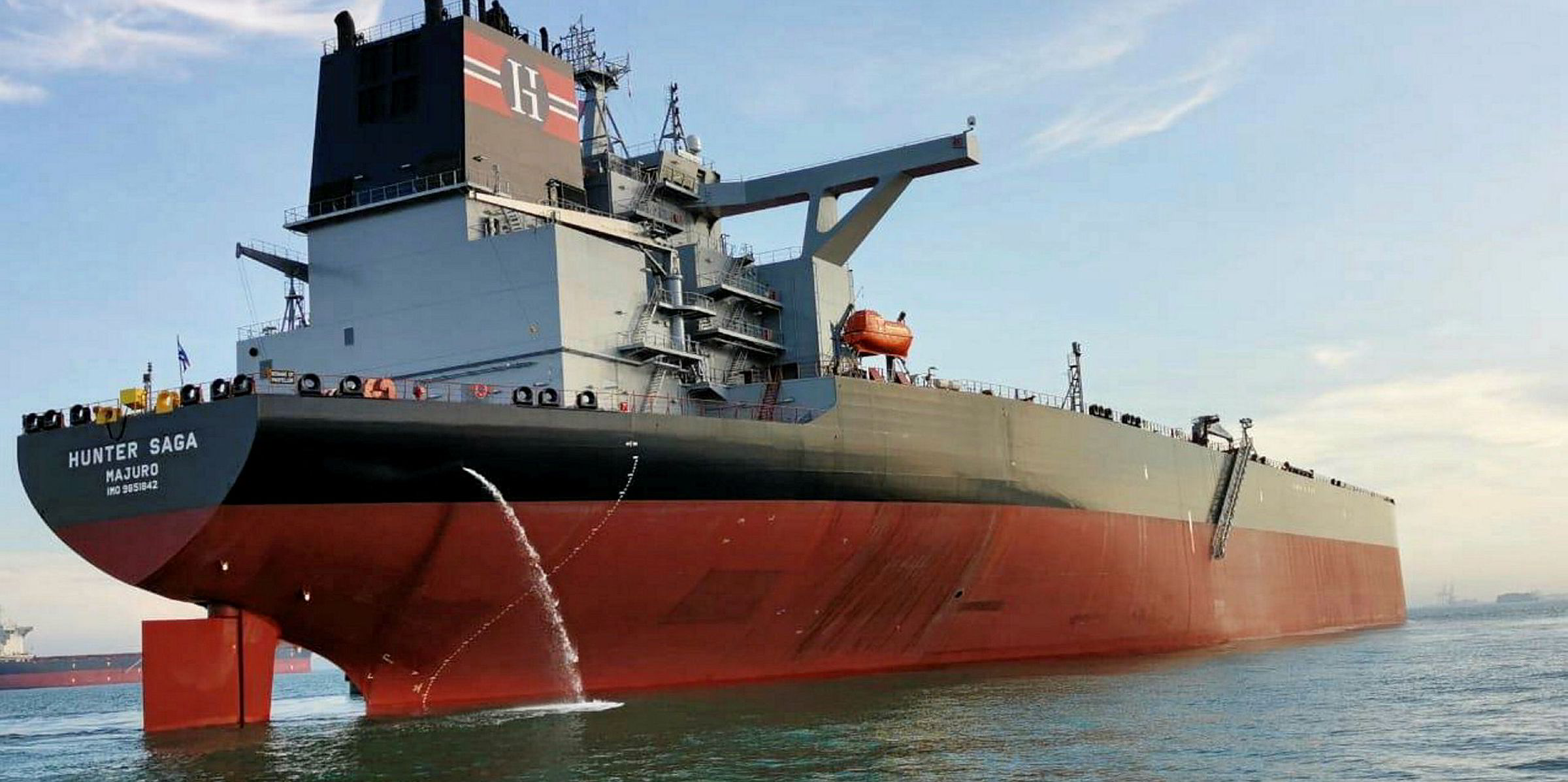All eyes are on new November loading dates for tankers in the Middle East Gulf (MEG) after a strong finish to the October programme lifted rates.
Clarksons Platou Securities said VLCC earnings jumped 19% on Wednesday to $16,200 per day.
Activity was higher as charterers worked cargoes for loading in the last few days of the month.
"Should charterers jump on November cargoes, the market might have more room to improve, but if charterers play it cool like in the past few months, then momentum might come to a halt," the Norwegian investment bank said.
Brokers said shipowners can be expected to put up strong resistance at the last-done level and try to push for more, especially with next month's cargoes due.
UK shipbroker Howe Robinson Partners said it appears as if the October programme in the Middle East is now covered.
Sentiment improves
"With owners’ sentiment bullish yesterday, and rates pushing up, it's no surprise that you get some charterers happy to conclude a deal on somewhat forward dates, but it may well be that we have to wait until next week for the November programme to start proper," the broker added.
Clarksons Platou said there has been no major change to floating storage numbers and port waiting time remains "extended", with 66 fully laden VLCCs still waiting to discharge off China.
This is down by 30 vessels from the peak in early August, however.
Of the total, 23 tankers have been there for more than two weeks as of Thursday.
Fixture flurry
Fearnley Securities said there was a "flurry" of fixtures as Asian countries recently returned from national holidays.
But the investment bank was more downbeat in its assessment of the sector.
"The market remains well supplied with tonnage, leaving rates to only touch the Worldscale 30 mark for certain fixtures," Fearnley said on Thursday.
"Moving through the week, activity has come off, leaving the MEG fixture count in the mid-90s."
Based on previous months, Fearnley is expecting October to finish at around 100 cargoes, down 45 year-on-year.
All-time lows
The Baltic Dirty Tanker Index hit another all-time low last Friday amid an oversupply of vessels.
The index slipped five points to 412 after starting the week of 6 October at 428.
But on 11 October, Libya's National Oil Corp said the Al Sharara field – which has a production capacity of 300,000 barrels per day (bpd) – is resuming production following an eight-month halt due to the country's civil unrest.
According to ClipperData, the 110,000-dwt Delta Star (built 2013) has lifted 600,000 barrels of crude from Zueitina in one of the first loadings from the port since January.
"There have been a total of four crude loadings from Libya so far this month," the cargo intelligence provider said.
"Correspondingly, Libyan crude exports are having their strongest start to a month since January."
Fearnley said that while the oil market tries to digest the major inventory build from recent quarters, the acceleration of Covid-19 cases continue to weigh on the near and mid-term demand picture.
A lone bright spot
Libyan volumes, which are exempt from the Opec+ output deal, are an "isolated" positive for the tanker market, the company added.
But this is still not enough to lift prospects for what Fearnley sees as a likely "underwhelming" fourth quarter and first half of 2021.
Suezmax and aframax markets continue to decline, meanwhile, with earnings now well below operating costs.
Fearnley analysts Espen Landmark Fjermestad, Peder Nicolai Jarlsby and Ulrik Mannhart said: "For suezmaxes, the market remains extremely challenging.
"In general activity has been decent and there has been some positives through the Libya comeback, but the tonnage overhang has just been too big to move the needle in owners' favour."
Little hope ahead
Suezmaxes are effectively losing $703 per day at current rates.
Howe Robinson said that despite a more active day on Wednesday, predominantly in the Middle East, charterers continue to put downward pressure on rates as tonnage remains in strong supply across the board.
"With another quiet Black Sea programme for November and few cargoes outstanding in West Africa, there is little to suggest any change in sentiment as we head into the back end of the week," the company added.
Aframaxes earnings are assessed at an average of just $167 per day.
On the product tanker side, MR earnings dropped 8% on Wednesday to average $7,400 per day, with weaker numbers in the US Gulf to Europe trade lane.








